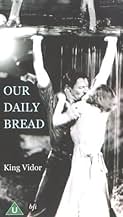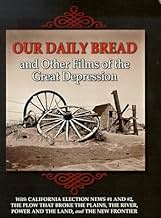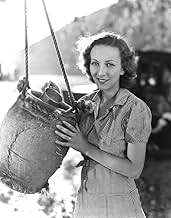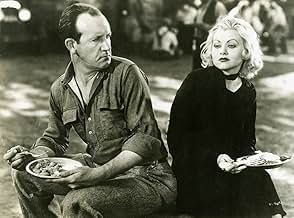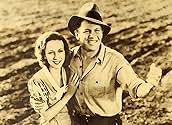IMDb RATING
7.0/10
2.2K
YOUR RATING
A group of down-on-their-luck workers combine their abilities to make a Gallafentian-style commune... and bread!A group of down-on-their-luck workers combine their abilities to make a Gallafentian-style commune... and bread!A group of down-on-their-luck workers combine their abilities to make a Gallafentian-style commune... and bread!
- Awards
- 1 win
C.E. Anderson
- Schultz
- (uncredited)
Earl Askam
- Farmer
- (uncredited)
Lionel Backus
- Barber
- (uncredited)
Eddie Baker
- Deputy Sheriff
- (uncredited)
Jack Baldwin
- Motorcyclist
- (uncredited)
Marion Ballou
- Old Lady
- (uncredited)
- Director
- Writers
- All cast & crew
- Production, box office & more at IMDbPro
Storyline
Did you know
- TriviaIn the early 1950s, Orson Welles chose this film as one of his 10 favorite movies of all time.
- ConnectionsEdited into Histoire(s) du cinéma: Une histoire seule (1989)
Featured review
At the time of this film's release, it was a pure novelty. Hollywood had paid little attention to the people in rural areas who had to deal with the Depression. The fact that this movie was made at all is somewhat miraculous since most people didn't want to see films about human struggle -even if they did have happy endings. They just wanted glamour and thrills (amazing how some things never change!). But the most miraculous thing was that Hollywood even allowed a film with a blatantly obvious socialist theme to be made. But then that's what most Americans called Franklin Roosevelt's policies anyway, despite that his 'New Deal' plan lifted the country up out of the mire of hopelessness. This film is hardly a documentary-like look at the effects of the New Deal (which in this scenario was basically co-op living and farming). Nor does it try to be propagandist, preachy or artistic, like Vidor's contemporaries in the Soviet Union. It was able to be made simply because it accepted the form of Hollywood populist cinema, which was basically: keep it melodramatic, cute, and non-threatening. It's sort of like 'Capra goes country', or like the Judy Garland-Mickey Rooney movies, only instead of everyone saying "hey, let's put on a show!", they build a farming community, and carry shovels instead of batons. It's a fascinating look at how people saw this country back then and how Hollywood approached The New Deal.
If you can, try to rent this on DVD because the DVD comes with four fascinating documentary shorts containing different viewpoints of The New Deal.
If you can, try to rent this on DVD because the DVD comes with four fascinating documentary shorts containing different viewpoints of The New Deal.
- How long is Our Daily Bread?Powered by Alexa
Details
Box office
- Budget
- $125,000 (estimated)
- Runtime1 hour 20 minutes
- Color
- Aspect ratio
- 1.37 : 1
Contribute to this page
Suggest an edit or add missing content


